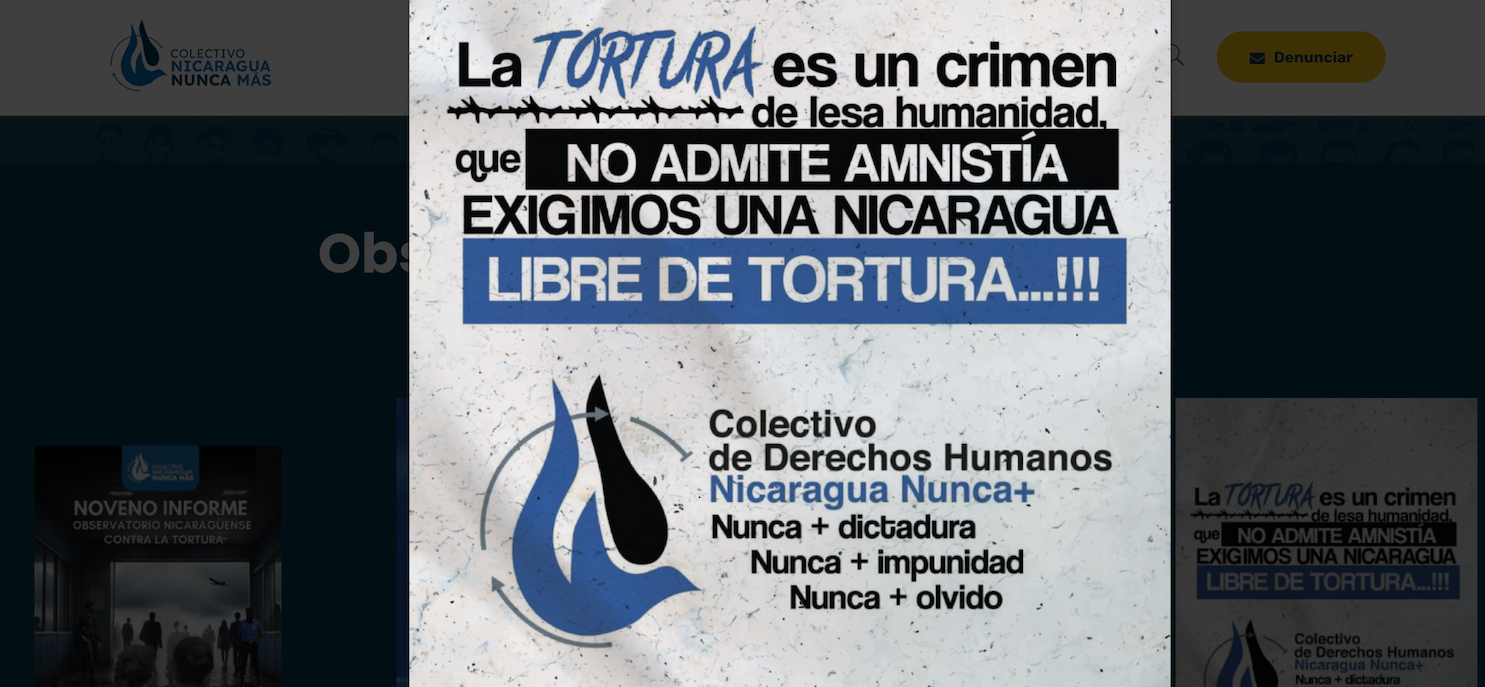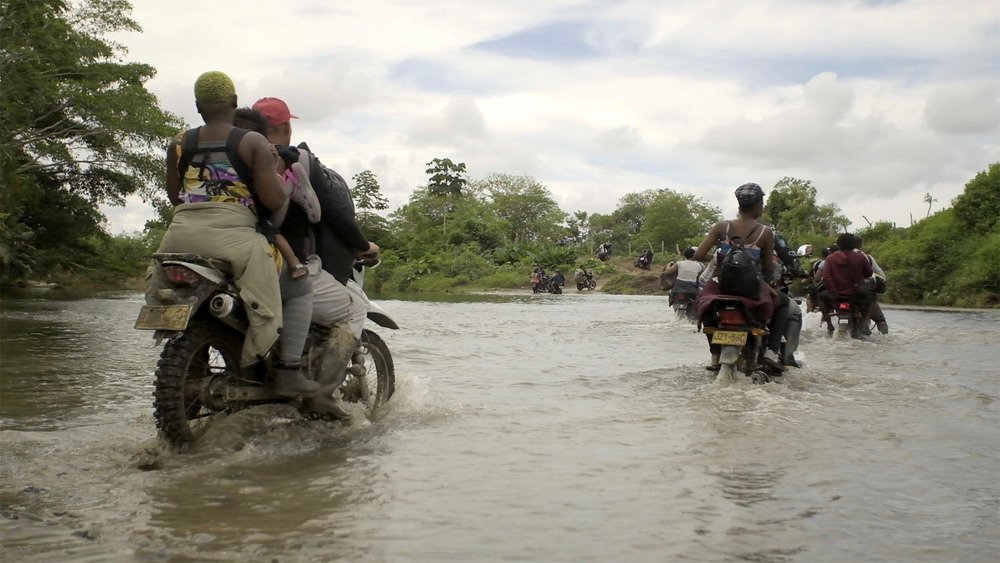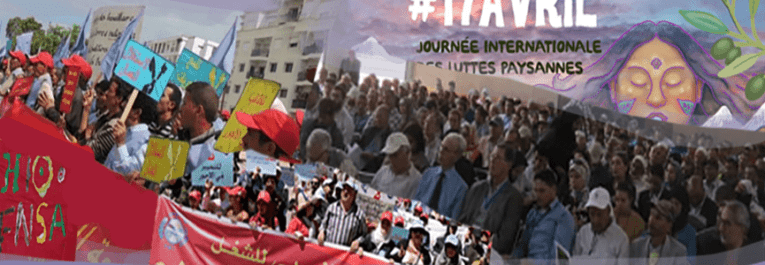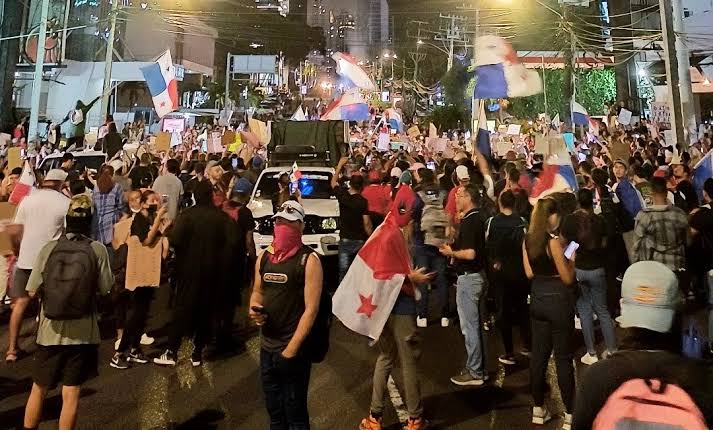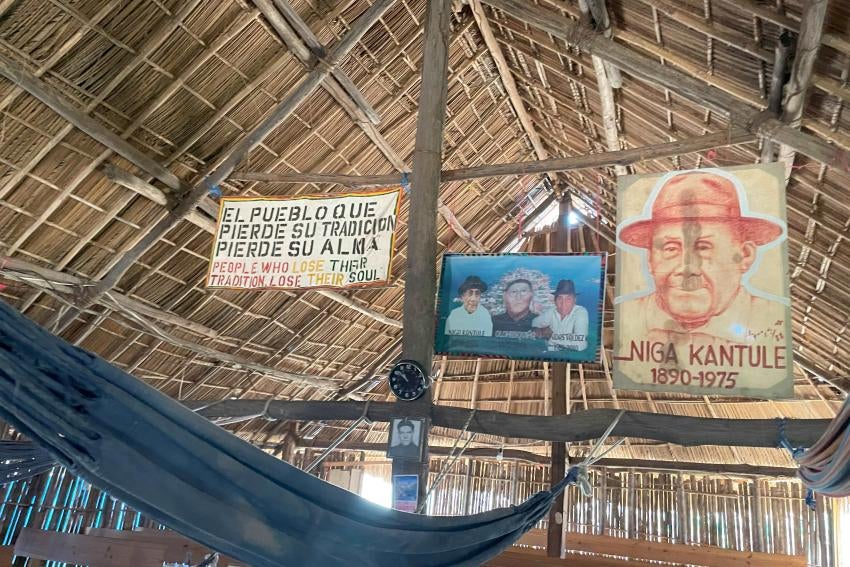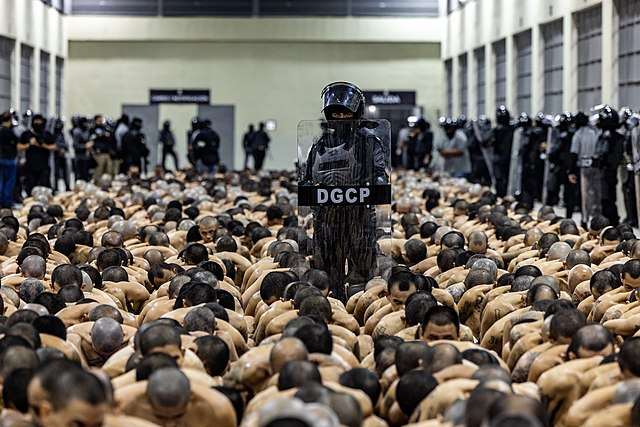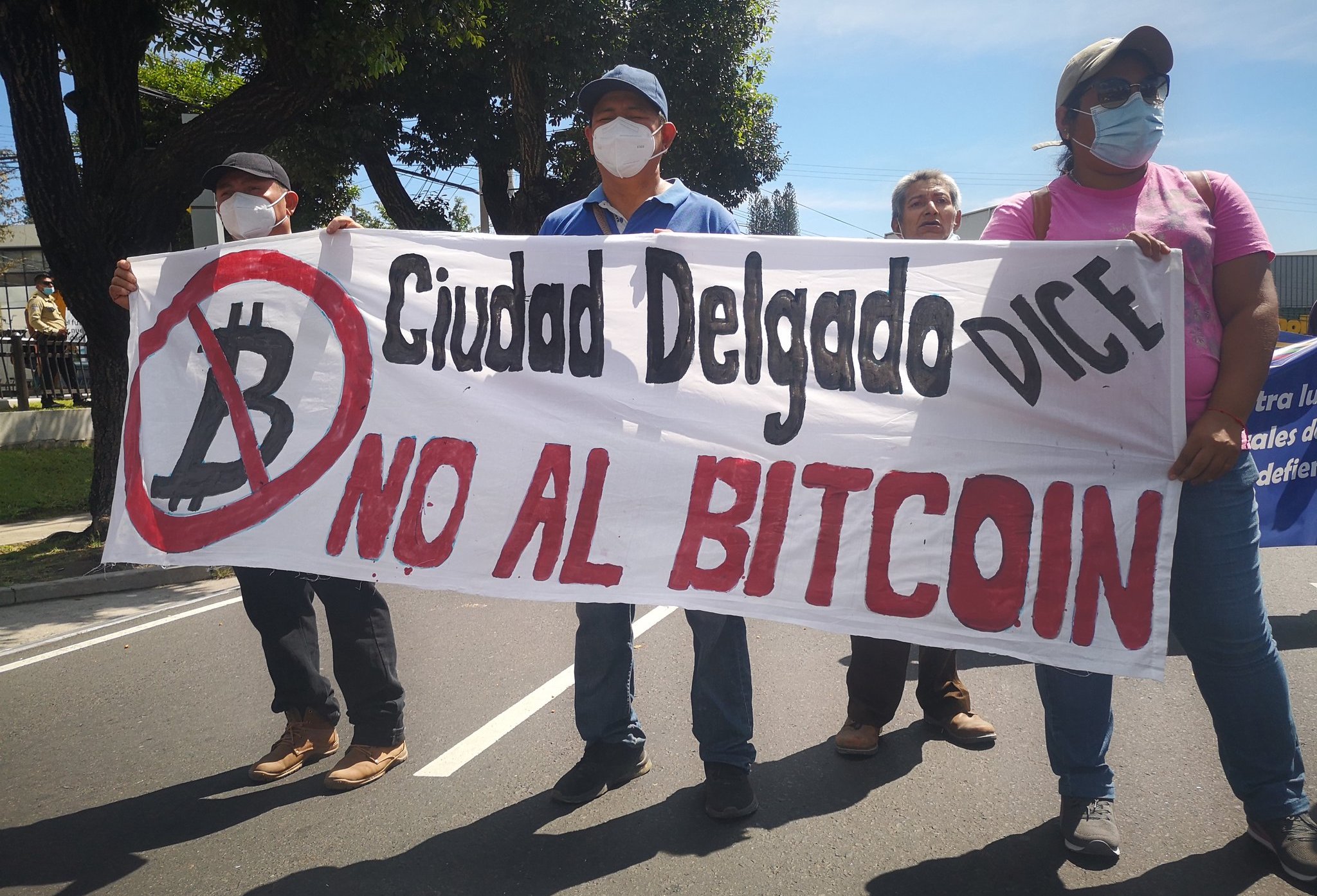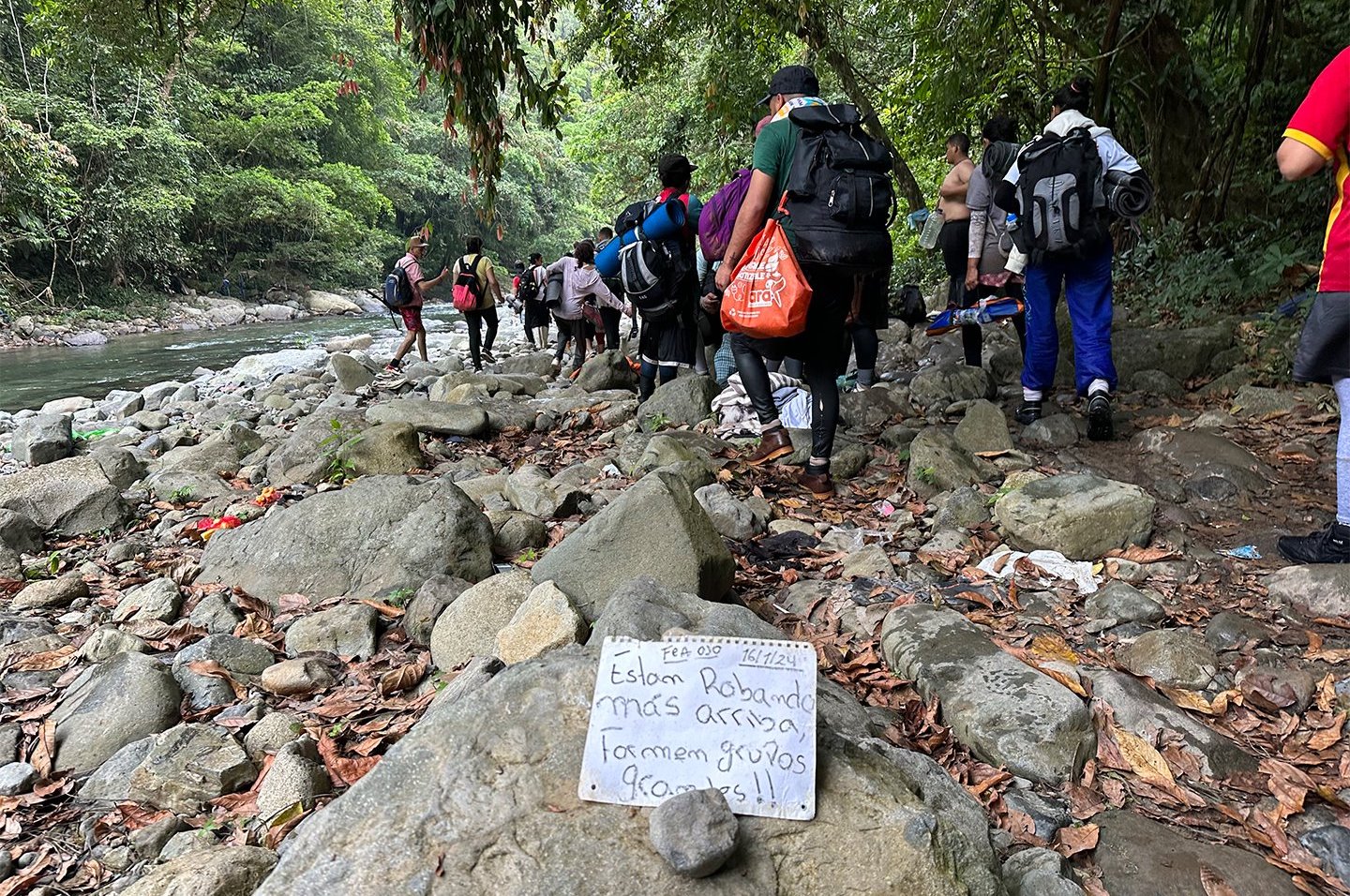
Panama feels pain of Trump migration crackdown
An eight-year-old Venezuelan girl died and 20 survivors were rescued by Panamanian authorities from a shipwreck during a journey from Panama’s northern port of Llano Carti to the Colombian border. Trump’s crackdown on migrants has triggered a “reverse flow” that is leading a growing number of asylum seekers to take a sea route back to South America to avoid crossing the Darién Gap—the perilous jungle trek connecting Panama to Colombia. (Photo: Note left on Darién Gap trail reads: “They’re robbing further up, form big groups!!” Credit: Peter Yeung/TNH)



